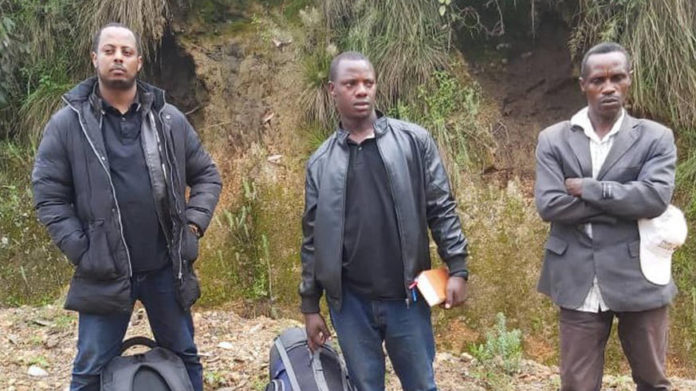By The Rwandan Lawyer
1.Introduction
Late Kizito Mihigo was reportedly caught tempting to cross Rwandan borders and join terrorist group operating in Burundian territory; he was accompanied with two other young men. Kizito Mihigo was therefore transgressing the judicial control imposed to him when he was released under presidential mercy by virtue of which he might not leave the country without prior formal authorization. Those young people who were accompanying him are legally called co-offenders or co-accused but as they had not been his co-accused in the previous case for which he had been forgiven, there incriminations differ from his. This study deals with the fate reserved to those co-offenders who lost their main offender. A latin legal principle reads that accessorium principale sequitur; is it applicable to the case of these poor young men?
2.Facts
The proceedings stirred up much debate, with Amnesty International, Human Rights Watch and the International Federation for Human Rights (FIDH) by turns condemning the trial as unfair and politically motivated. After several months of heavily followed hearings, on 27 February 2015 he was sentenced to ten years in prison for “conspiracy against the state.” The prosecution had requested a life sentence.
The singer spent more than three years in prison. On 14 September 2018, Mihigo received, like opposition leader Victoire Ingabire, a presidential pardon from Kagame.
Since then, he had been subject to the same restrictions as the former presidential candidate, such as having to report monthly to the prosecutor’s office and to request the authorization of the Ministry of Justice each time he wished to leave the country. Mihigo had been arrested four days earlier in the south-western Nyaruguru district. According to Rwandan authorities; he was attempting to get to Burundi to join “terrorist groups” hostile to the Kigali regime when he was recognized by farmers from the area. He reportedly tried to bribe them to keep quiet before being turned over to the Rwanda Investigation Bureau.This version of events has been disputed by people close to the singer. Regularly in contact with Mihigo since his release, one such person stated that he had never mentioned any plans to join an armed group, although the singer had expressed a desire to leave the country.
The three alleged accomplices Nkundimana; Joel Ngayabahiga and Harelimana are prosecuted for having played different roles in the operation of Kizito Mihigo to flee from Rwanda to Burundi: respectively Nkundimana was a gloom and informer of Kizito Mihigo; Joel Ngayabahiga brother of the latter would help them to escape from the country as he resided at Nyaruguru a district neighboring the territory of Burundi ;and Harelimana would be their driver and had been the co-detainee of Kizito Mihigo when jailed at Mageragere prison.
3.Analysis
These three young men objectively and legally may be qualified as accomplice of the fugitive helping him as per article 2, point 5 of thelaw nº68/2018 of 30/08/2018 determining offences and penalties in general, an accomplice is a person knowingly aids or abets the offender in preparing, facilitating or committing the offence, or a person who incites the offender. It is an individual who participates in the commission of a crime knowingly, willingly, and with common interest. It is an individual who knowingly; helps the offender (s) of a crime, in preparing, facilitating or committing it, whether or not he/she physically commits the act itself. The complicity is thought of only when the offender performs one of the following acts which are part of the definition of accomplice. Therefore, a person may participation as an: accomplice by instigation (abetting);accomplice by instruction; accomplice by providing necessary means; accomplice by providing aid and assistance; accomplice by concealing criminals. The words ‘aid and abet” are words to be given their ordinary meaning. The suppliers of equipment for a criminal offence are aiders and abettors.
However, there is a legal concern on whether those people as well as the Ruheru population were aware of the legal implications of the presidential mercy Kizito Mihigo had benefitted from so that they may know the detail of judicial control which was not yet removed to fully grant liberty to the star singer.
Besides, as the main offender deceased there is overtly no reason to maintain the prosecution and these young men generally not educated to mean that they ignore law deserve to be immediately released given that the offender who was disturbing the Rwandan regime passed away.
4.Conclusion
The applicability of the principle accessorium principale sequitur and the qualification of accomplices are discussable especially as the main offender the late Kizito Mihigo was either victim of suicide or of deliberate and disguised assassination.This to mean that as the criminal action expires with the death of the accused, its fate may logically impact on prosecution of accessory criminal liabilities.





























































